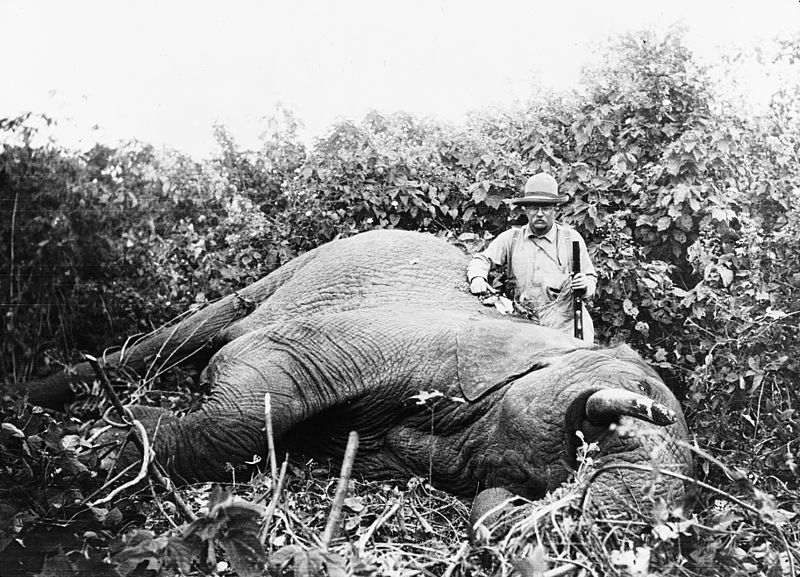Events
Archived Event
Back to the Future: Teddy Roosevelt’s Anthropocene
Thursday 11 February 2016
Hall Center for the Humanities, University of Kansas
A Conversation with Iain McCalman
In March 1909, Theodore Roosevelt embarked on an eleven-month, post-Presidential shooting safari that doubled as a scientific expedition to provide the Smithsonian Museum in Washington with complete samples of East Africa’s rich wildlife. As he journeyed on an American-built steam train from the coast to the interior, he congratulated himself on travelling back into a primeval past that was elsewhere lost. The sight of countless herds of wild beasts roaming the savannah evoked for him the primeval epoch of ‘the Pleistocene’. Likewise, the tough white hunters and settlers of British East Africa were nostalgic reminders of the masculine Wild West frontier of his youth. Within a few months, however, he was publicly urging these same pioneers to emulate America by transforming this primitive Eden into a civilized, imperial, ‘white man’s country’, while at the same acknowledging regretfully that this would inevitably lead to the loss of much of the country’s wildlife and the domestication of its ‘savage’ peoples.
McCalman will argue that Roosevelt’s famous African safari proved in fact to be a harbinger and agent of exactly the transformative social and environmental forces that he both regretted and extolled. Despite his lifelong disgust at ‘game butchers’ and ‘trophy hunters’, his own safari behavior savored uncomfortably of both. The eleven thousand specimens procured on his ‘science safari’ not only included several rare and endangered animal species, it also became the catalyst for a new type of commercialized safari industry that would ultimately threaten the biodiversity of the wildlife that he celebrated in newspaper articles and his million-selling book, African Games Trails. If Teddy Roosevelt journeyed back into the Pleistocene, it was as an early agent of a new and destructive Anthropocene.
Photo: Wikimedia commons
